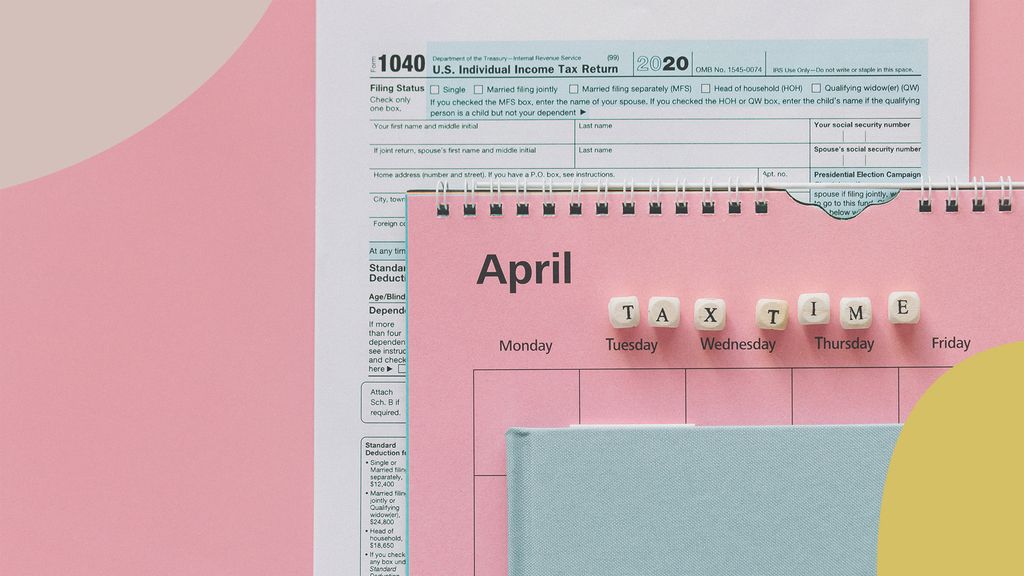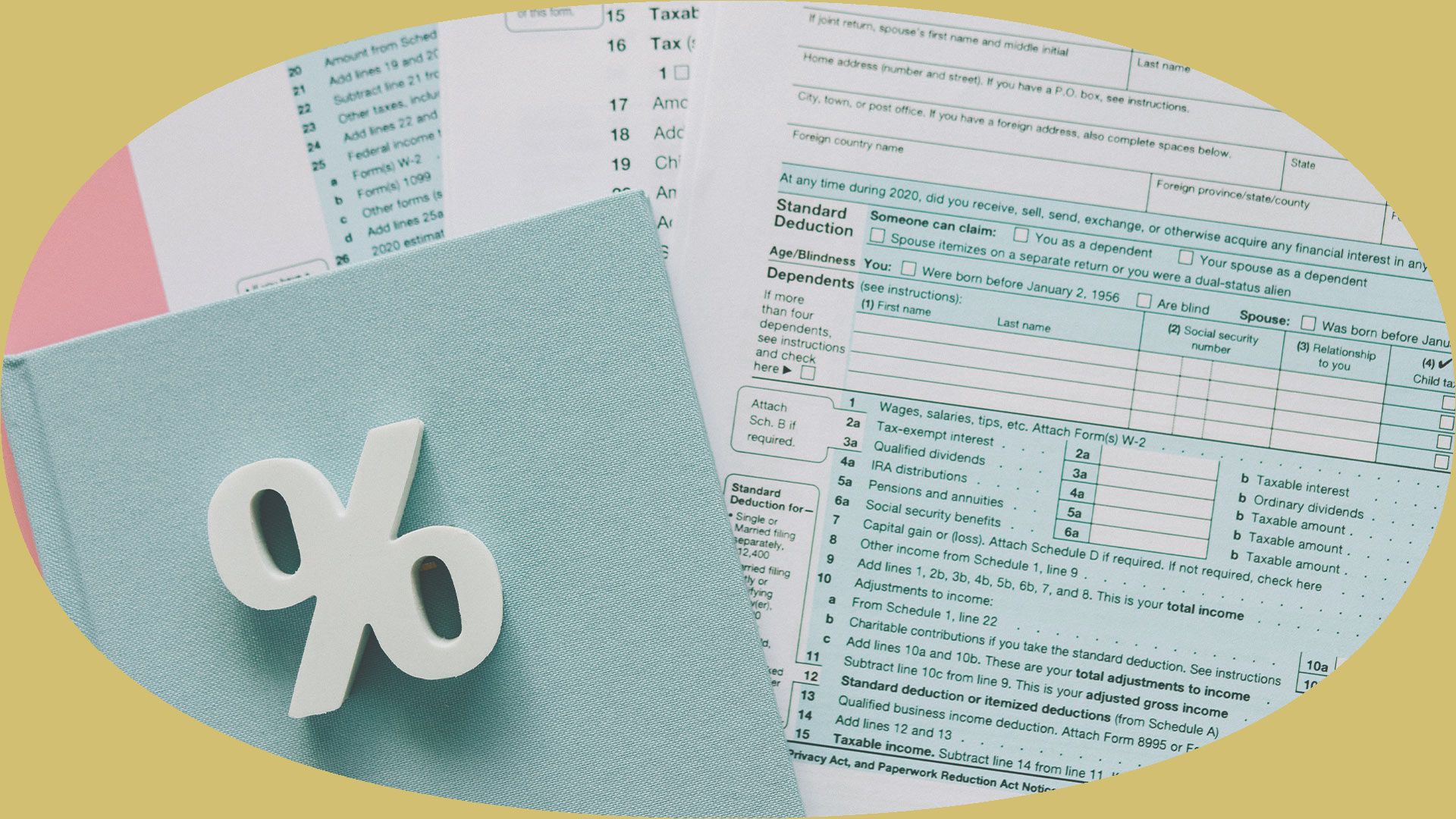Tax Tips for Remote Workers: What You Need to Know If You Were WFH in 2020

by Jessica Walrack

As the federal government expands the deadline for filing 2020 taxes, you may be wondering how income taxes will adapt and change after the unconventional year we’ve just been through.
The thousands of people who joined the tribe of remote workers in 2020 are in the midst of learning a few things about the interaction between remote work and the IRS. We’ve been paying attention and have a few tax tips to share as working remotely continues in 2021.
What You Should Know About Filing Taxes After 2020
When filing taxes for 2020 and beyond, you may encounter some changes if you:
- Receive unemployment insurance benefits
- Perform freelance work as an independent contractor
- Work from more than one state
While wrkfrce recommends that you contact your tax professional for specific advice, we have created a quick guide on how these situations will generally impact your income taxes as a remote worker.
How Will Unemployment Impact Your Taxes?
If you were unemployed for any part of 2020 and were one of the roughly 40 million Americans who received unemployment insurance income, the benefits are considered taxable income.
Taxes are not usually withheld from unemployment income automatically, so they must be paid postreceipt. In some cases, quarterly estimated payments are required. However, recent legislation (the latest COVID relief bill) exempted the first $10,200 in unemployment payments from taxes if your adjusted gross income (AGI) was less than $150,000 in 2020. This will help to reduce the tax liability for those who received any unemployment income last year.
If you continue to receive unemployment benefits in the coming year(s), be sure to plan ahead for the potential tax repercussions.
What Deductions Can Work-from-Home Employees Claim?
As an employee, you can no longer claim tax deductions that reimburse you for costs incurred as part of your work. Why? The Tax Cuts and Jobs Act (TCJA) of 2017 suspended the home deduction as well as miscellaneous write-offs (formerly allowed up to 2 percent of an employee’s AGI) from 2018 to 2025. TCJA prevents employees from deducting employment-related expenses, including:

- Home office costs
- Travel expenses
- Work-related supplies
- Business license fees
Note:
The home office deduction and other business write-offs are currently still available to individuals who work as independent contractors or who are otherwise self-employed.
How Are Taxes Configured When You Work from Multiple States?
After the pandemic hit in March 2020, about half of US employees switched to remote work, according to Gallup. As a result, some employees who previously crossed a state border to get to the office ended up working from home in the state in which they live. For example, downtown Manhattan became a ghost town as commuters into the city worked from their home offices in New Jersey or Connecticut.
Likewise, some remote employees decided to hit the road and work from a cross-country location. Since no one was physically tied to an office, why not, right? Well, once tax filing season began in 2021, those who worked from more than one state in tax year 2020 started to see some of the complexities that can arise: lots of questions—and even some legal challenges.
According to the Journal of Accountancy, “A new survey conducted for the AICPA by The Harris Poll found that 55% of respondents who worked remotely [in 2020 weren’t] aware of the potential tax consequences of not changing their state tax withholding to reflect where they worked remotely.”
Further, some governments are facing uncertainty. Last fall, the state of New Hampshire filed a claim with the US Supreme Court to challenge a COVID-19 policy put in place by the state of Massachusetts. The policy requires New Hampshire residents who worked in Massachusetts prepandemic but who worked remotely from New Hampshire to pay Massachusetts income tax. Time will tell what the verdict is. Meanwhile, 15 states have promised not to tax people who moved during the pandemic, according to the American Institute of Certified Public Accountants.
Filing Taxes in Multiple States: Which State Gets Your Money?
Every state has its own respective laws regarding tax filing requirements, residency, and remote or gig work. Although some of those laws are currently in question, it’s important to look up the necessary regulations and consult your tax professional on your particular situation to supplement this general guidance:
Where Do You Call Home?
In most cases, you will file a residence tax form with the state where you keep your primary residence and a nonresident form in the state(s) where you work temporarily. If you move your permanent residence from one state to another, you will likely file part-year resident forms with both states.
Keep in mind, some states consider you a permanent resident if you stay in the state for a certain period of time (for example, 183 days in New York). So a state could become your legal permanent home even if you don’t call it home.
States Without Income Tax
Additionally, some states don’t have an income tax. If you worked from one of these states last year, you won’t need to worry about filing a return in them for earned income (making them great options for those looking to permanently relocate):
- Alaska
- Florida
- Nevada
- New Hampshire
- South Dakota
- Tennessee
- Texas
- Washington
- Wyoming
Note:
New Hampshire and Tennessee do tax interest income and dividends. So if you receive either form of income there, you would need to file a state return.
State Tax Filing Requirements by State
Did you work from a state that does have an income tax in 2020, or do you plan to in the future? If so, use these handy state-by-state links to visit the applicable revenue department website for filing requirements:
Alabama, Arizona, Arkansas, California, Colorado, Connecticut, Delaware, Georgia, Hawaii, Idaho, Illinois, Indiana, Iowa, Kansas, Kentucky, Louisiana, Maine, Maryland, Massachusetts, Michigan, Minnesota, Mississippi, Missouri, Montana, Nebraska, New Hampshire, New Jersey, New Mexico, New York, North Carolina, North Dakota, Ohio, Oklahoma, Oregon, Pennsylvania, Rhode Island, South Carolina, Tennessee, Utah, Vermont, Virginia, Washington, DC, West Virginia, Wisconsin.
Will Your Tax Liability Increase Because of Double Taxation?
A common concern is if you will be taxed multiple times on the same income by various states. It is possible, but it depends on the states you live in and visit. Many have regulations or state income tax reciprocity agreements in place to avoid double taxation.

For example, if your primary residence is in California but you made nonresident income in Arkansas through a rental property you own there, you would pay state tax to Arkansas. Then you would pay state tax to California but would receive the California Other State Credit from the state for the amount you paid to Arkansas.
What If You Freelance as an Independent Contractor?
Lastly, 2020 drove many to pivot and explore new avenues for earning a living, such as freelancing or doing contractual work of some sort. But what does that mean for your tax bill? If you gross at least $400 from freelance work as an independent contractor in a given year, it will impact your taxes. Self-employment taxes kick in once you pass the $400 threshold, so you’ll need to file a Schedule C or Schedule C-EZ to report your earnings and deductions.
As a freelancer, you receive all of your income up front. At the end of the year, you calculate all of your earnings and deductions and report them on your Schedule C. If your gross earnings total more than $400, you will owe self-employment tax as well as income tax. As such, it’s best to calculate your net earnings as you go, put aside money for taxes, and make quarterly payments.
Note: Freelancers are required to pay estimated taxes quarterly if they expect to owe more than $1,000 based on the prior year’s return. You may not know this in your first year, but in the following years, you could face a penalty if you don’t pay quarterly.
If you made more than $600 from one client, you are required to report your earnings on a 1099-NEC form (before 2021, this was the 1099-MISC). You will receive this form from the client, who will send a copy to the IRS as well. However, whether you receive a 1099-NEC or not, you are required to track and report all your earnings.
Get Support with Your Post-Pandemic Taxes
We’ve covered the basics here, but it’s worth repeating that for more personalized information, it’s always best to speak with a CPA or qualified tax preparer who can answer questions specific to your situation. Mistakes on taxes can be costly, so it’s worth consulting a professional who can protect your interests. Check out the resources below to learn more: